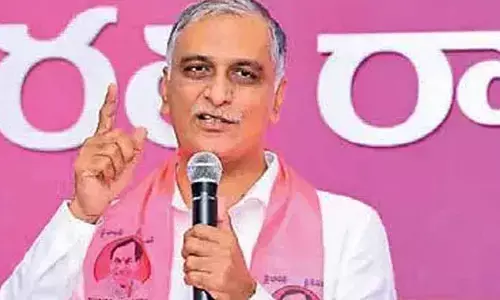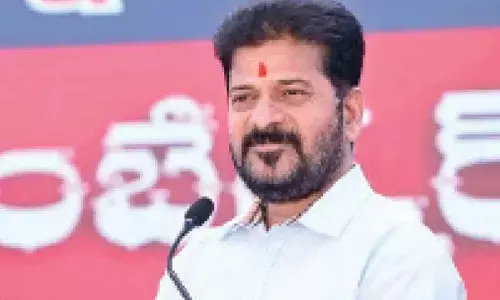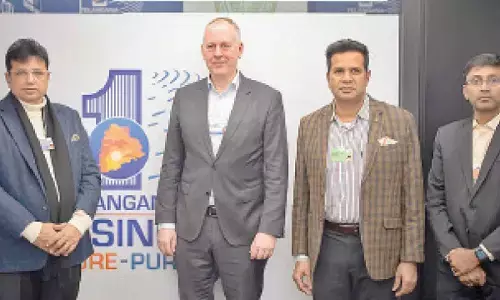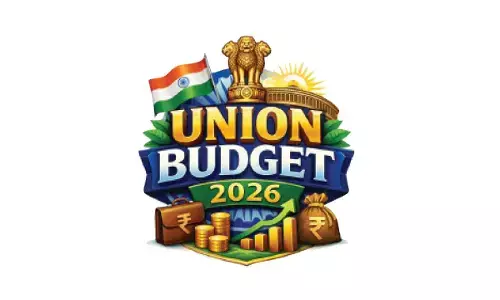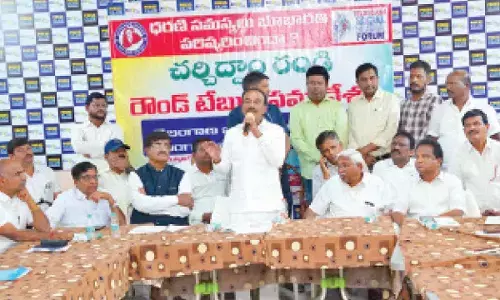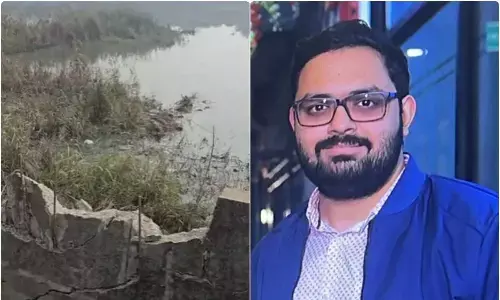Dr Kalam stood for true Indian values
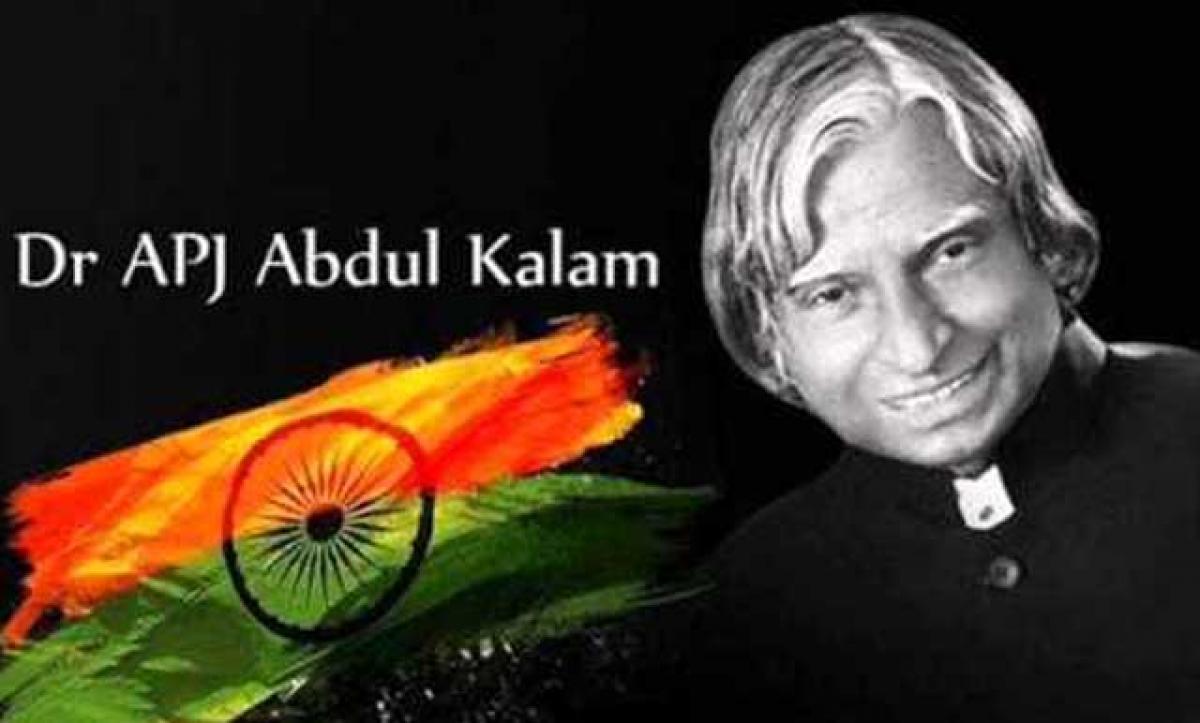
Dr Kalam stood for true Indian values. There was an old world touch and a hark back to values of yore amidst new world tensions as India last week mourned the passing away of former President APJ Abdul Kalam.
Kalam will be remembered – and hopefully, emulated – for his expertise and views on a wide range of subjects. For one, he wanted basic facilities to reach rural areas to prevent the rush to the cities causing haphazard urbanisation. His approach to education and to the young was refreshingly different from the way governments handle. A devout Muslim, he quoted from the Quran and the Upanishadas with equal ease. He offered namaz and also prayed at Hindu temples. Hindu and Muslim hardliners have been one in criticising him for this, at least privately. They miss the point that Kalam represented the synthesis which is at the root of the Indian civilisational discourse
There was an old world touch and a hark back to values of yore amidst new world tensions as India last week mourned the passing away of former President APJ Abdul Kalam. It was momentary though, but the loss of a good man combined with a collective sentiment of loss of those values for which we can hold only ourselves responsible.
.jpg)
It seemed pan-Indian, going by the tributes paid to him wherever he had worked, being a nomadic-bachelor scientist. In Hyderabad, he had worked in many defence research organisations, including DRDL, RCI and MIDHANI. But a better part of his career and stay was divided between Kerala and New Delhi.
Kalam spent 26 years in Kerala, among other things, pursuing the rocket and missile missions. And his years as the top honcho of the Defence Research and Development Organisation (DRDO), as Scientific Advisor to the Prime Minister, as the President and eight years post-retirement, were all spent in New Delhi.
The sentiment is pan-Indian because, perhaps, no other departed leader since Mahatma Gandhi and Jawaharlal Nehru has caused such a deep sense of loss. It is rare that a man, going at 83, is thought of so widely as someone who should still be among us, to guide and inspire us.
Why do we need Kalam, or someone like him? Harsh or cynical it would seem, but the fact is that post-independence, as those who fought for freedom departed – and not all of them need to be painted in the same bright colours on our mindscape – we have failed to find from among ourselves icons worth emulating.
After Mahatma Gandhi, who is paid lip service occasionally and who needs a “Munnabhai” to do “Gandhigiri” to gain currency in popular public psyche, the closest is Nehru. The argument here is not to favour blind hero-worshipping. It is in the context of Nehru being currently demonised for political reasons because the party he once led, or at least the one that carries that name, happens to be in the opposition.
Considering that, it is satisfying that those who were responsible for Kalam being the President in 2002 – and one would like to emphasise the key role played by then Prime Minister Atal Bihari Vajpayee over anyone else -- have cared to own Kalam up for giving him due respect and recognition.
It is necessary to qualify because Kalam’s elevation to the highest office was propelled by the need to conduct political penance by putting a Muslim in that office to atone for the deaths of a thousand-plus people of that community in Gujarat’s sectarian violence. It was meant to salvage the inclusive nature of Indian democracy.
The Bharatiya Janata Party (BJP) leaders would then privately boast that Kalam was a “Muslim candidate whom none can oppose.” They pre-empted a possible Congress move to field a minority candidate and embarrass the Vajpayee Government. Ironically, the man to ‘discover’ Kalam was Mulayam Singh Yadav, a socialist and an opponent of the Vajpayee Government and the BJP.
His intention to align with Vajpayee/BJP was to bypass the Congress. As Defence Minister, Yadav had valued Kalam’s worth and a well-deserved Bharat Ratna had been conferred. It is a given that the Indian democracy is more of a “prime minister-o-cracy” and the choice of the Head of State is virtually the PM’s prerogative.
Most, if not all, Presidents have been prominent political figures close to, or loyal to, the party in power. Kalam did not qualify on any of those grounds. But then, he was unique on many counts and eminently justified his choice, not just to those who made it, but also to the nation as a whole.
No other President has come from the humble, even obscure, background as Kalam did. Before, during and after his presidency, his family has continued to live in a village on an island near Rameshwaram in Tamil Nadu. Kalam’s tenure in the Rashtrapati Bhavan was not blemish-less. He dissolved the Bihar Assembly while touring Moscow.
Others holding that office have done things more dubious and debatable. It becomes essential to gloss over them because the presidency, after all, enjoys less powers than the PM and his/her cabinet in India’s constitutional scheme of things. And yet, when it came to deciding who should succeed the Vajpayee Government after it lost the 2004 election, Kalam silently withstood pressures.
In his memoirs, he has detailed how he rejected the case of Dr Subramaniam Swamy against Congress chief Sonia Gandhi becoming the PM. He need not have, since Sonia nominated Dr Manmohan Singh. But he chose to clear his side. No other President has been urged by large sections of influential and educated middle class to return to that office five years after retirement.
Some political leaders and parties, the very entities these middle class proponents are tired of, opportunistically jumped in to ‘persuade’ Kalam. Their idea, again, was to embarrass the government of the day. It is said that Kalam would have agreed if he was to be the consensus candidate. But there is nothing concrete to go by.
Kalam was non-political, but not apolitical. He did not want to be in the hands of those who wanted to take on the Congress-led alliance that had an overwhelming majority among the lawmakers who elect the President. He did not attempt a Putin by seeking that office because he would obviously have made adversaries, something he had escaped during his long years in government service.
Kalam made his otherwise State visits abroad purposeful. He told the generals then ruling Myanmar that jailed pro-democracy leader Aung Saan Suu Kyi should be treated better if they wanted to end the world community’s opprobrium and end their isolation. Visiting Africa, he initiated the process by which much of the continent is today connected by the Internet to India’s healthcare network.
Kalam will be remembered – and hopefully, emulated – for his expertise and views on a wide range of subjects. For one, he wanted basic facilities to reach rural areas to prevent the rush to the cities causing haphazard urbanisation. His approach to education and to the young was refreshingly different from the way governments handle.
A devout Muslim, he quoted from the Quran and the Upanishadas with equal ease. He offered namaz and also prayed at Hindu temples. Hindu and Muslim hardliners have been one in criticising him for this, at least privately. They miss the point that Kalam represented the synthesis which is at the root of the Indian civilisational discourse. This is the larger lesson to learn from Kalam – for now and for the future.









